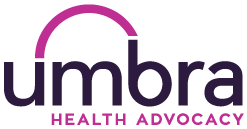How To Protect Yourself From Dangerous Drug Interactions

Not all medications get along. Drug interactions, the result of taking more than one medication at once, can be extremely dangerous. One estimate showed that 3-5% of all medication errors that happen in a hospital are due to drug interactions. Here's one story of a patient who experienced negative effects of a drug interaction.
Mrs. Adams had been visiting her son and his family. She was reading a book to her grandson, when she began to have trouble breathing and started breaking out in hives. She passed out, and her son dialed 9-1-1....
She's back in her son's home again now, looking back over the entire experience which was horribly traumatic, not just for her but for her son, her young grandson, and the entire family.
They thought she was going to die. According to the EMTs, she almost did.
The Dangers of Drug Interactions
What caused the hives and the breathing interruption? It turned out she was taking two medications that conflicted with each other. One drug was prescribed for her months ago by her cardiologist. The other had been prescribed just the day before by her rheumatologist to treat her arthritis.
Two drugs conflicted. She wasn't allergic to either one. It was like the drugs were allergic to each other. Those two drugs should never have been prescribed to be taken at the same time.
The rheumatologist never should have prescribed the one he did. He almost killed Mrs. Adams with that prescription.
(And, to add insult to injury, just wait until Mrs. Adams gets the bill for the trip to the ER!)
Conflicting drugs cause problems every day for patients. Despite the warnings in the literature, in the enclosures that come with the prescription, and sometimes even in the patient's electronic medical record, drug conflicts cause illness and death every day. According to the FDA, one patient per day in the United States dies from these sorts of medical mistakes, and another 1.3 million are injured.
Root Causes of Drug Interactions
How does that happen? Because too many doctors don't read their patients records, nor do they talk to each other. If Mrs. Adam's rheumatologist had looked at her record, he would have seen that she was taking the drug prescribed by her cardiologist. If he wasn't sure whether there would be a conflict, the click of a mouse could have provided that information. But that only works if the specialists work in the same health system with the same medical record for each patient. That's not always the case. Ideally, one prescribing doctor would call the other to discuss treatment possibilities. A simple conversation could have prevented a dangerous drug interaction.
So why didn't he double check? There may be a few reasons:
- The list of drugs Mrs. Adams takes was too difficult to find in the medical record. Maybe he didn't take the time to do it.
- A warning in her medical record that would show conflicts was too hard to find. Maybe he didn't take the time to do it.
- He would have had to actually dial the phone - so he didn't take the time to do it.
Whatever the reason, he didn't take the time. Trying to save time is a money-based problem, one reason so many medical errors take place. It's the rule that says, "If you spend too much time with this patient, you won't get reimbursed for that time."
And, so, yes... the real reason Mrs. Adams almost died boils down to "Follow the Money."
The odds may catch up to you, too.
Which is yet another reason why finding a trusted health or patient advocate is crucial if you need treatment for a long-term (like arthritis) or life-threatening (like heart disease) condition.
Today Mrs. Adams does have an advocate who goes with her to every appointment, asks her doctor or nurse to double check for drug conflicts, and makes sure she understands her medical information and the decisions she needs to make.

Mrs. Adams thinks the peace-of-mind is more than worth the expense.
Knowing what can happen if you don't have an advocate by your side (because, don't forget, you don't know what you don't know!), isn't it a good idea for you to find an advocate, too?
- Learn More about Drug Interactions and Medication Conflicts
- You Bet Your Life! The Top 10 Reasons You Need a Professional Patient Advocate by Your Side
Find a Health / Patient Advocate or Navigator
Learn more about The Alliance of Professional Health Advocates
